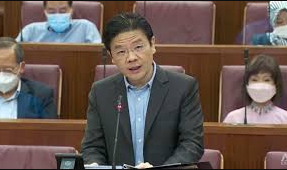"SINGAPORE: Prime Minister Lawrence Wong emphasised the importance of maintaining sound public finances as a “critical enabler” of Singapore’s long-te
“SINGAPORE: Prime Minister Lawrence Wong emphasised the importance of maintaining sound public finances as a “critical enabler” of Singapore’s long-term success during his Budget statement on Tuesday (18 Feb). He explained that prudent spending and balanced budgets are essential to meeting both current and future needs while keeping taxes low and avoiding public debt.
Mr Wong reported that Singapore’s revenue collections in 2024 exceeded expectations, largely driven by an increase in corporate income tax receipts. Previously steady at about 3.2% of GDP, corporate tax revenue surged to an estimated 4.1% of GDP for Fiscal Year 2024. This rise made corporate income tax the largest contributor to government revenue, surpassing the Net Investment Returns Contribution (NIRC).
“I anticipate a budget surplus of $6.4 billion for FY2024, representing 0.9% of GDP,” stated Mr Wong, who also serves as Singapore’s Finance Minister. He expects a similar fiscal outcome in FY2025, with a projected surplus of $6.8 billion, or 0.9% of GDP.
The increase in government revenue has allowed for greater spending to support Singaporeans. In December 2024, the government allocated $3 billion for MediSave top-ups to help offset rising MediShield Life premiums, which are designed to provide better coverage and higher payouts.
Mr Wong also noted that resources have been allocated for strategic projects aimed at enhancing Singapore’s economic competitiveness, including major infrastructure developments like Changi Terminal 5.
However, he cautioned that it remains uncertain whether the surge in corporate tax revenue is a temporary occurrence or a sustainable trend. He pointed out that global tax dynamics are unpredictable, particularly following the new US administration’s withdrawal from previous international tax agreements coordinated by the OECD.
The Prime Minister also highlighted a steady rise in government spending, which has grown from approximately 15% to 18% of GDP. Based on historical trends, government expenditure is expected to reach about 20% of GDP by 2030.
“With increasing global uncertainties and a growing need to invest in our workforce and support an ageing population, we may face pressure to expand public spending at a faster rate than before,” he said, underlining the challenges of maintaining fiscal sustainability in the coming years.”



COMMENTS